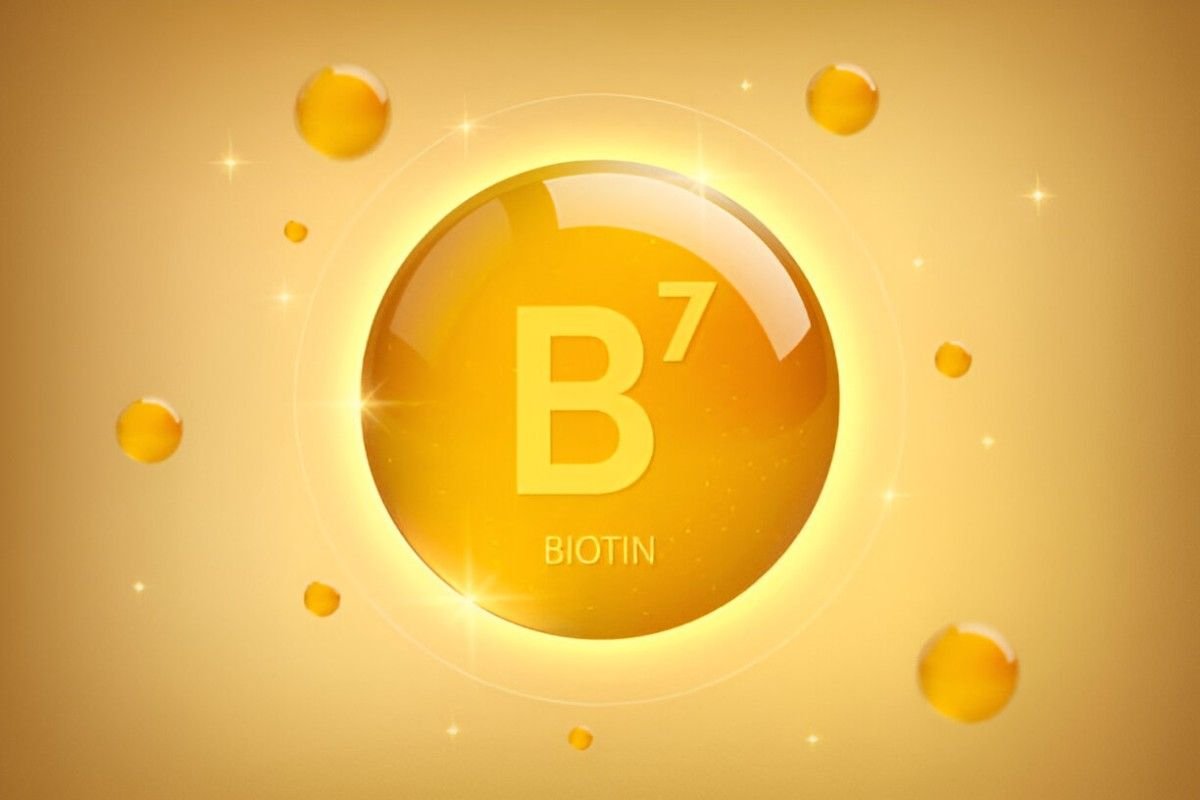Biotin, also known as vitamin B7 or vitamin H, is a water-soluble B-complex vitamin that plays a vital role in various metabolic processes in the body. It is renowned for its ability to promote healthy hair, skin, and nails, but its benefits extend far beyond cosmetic enhancements. In this article, we’ll delve into the nutritional values, key health benefits, potential therapeutic uses, cautions, ways to incorporate biotin into your diet, and other relevant information.
Summary Table
| Aspect | Details |
|---|---|
| Nutritional Values | Water-soluble B-complex vitamin; RDA varies from 30 to 100 mcg per day |
| Key Health Benefits | Hair, skin, and nail health; metabolism support; blood sugar regulation; nervous system function |
| Therapeutic Uses | Hair loss, brittle nails |
| Cautions | Interference with lab tests, allergies and sensitivities |
| Incorporating into Diet | Eggs, nuts and seeds, meat and fish, vegetables |
Nutritional Values
Biotin is a micronutrient that serves as a cofactor for several enzymes involved in carbohydrate, fat, and protein metabolism. While the Recommended Dietary Allowance (RDA) for biotin varies depending on age, gender, and life stage, adults typically require around 30 to 100 micrograms (mcg) of biotin per day. Biotin is naturally found in various foods such as eggs, nuts, seeds, fish, meat, and certain vegetables.
Key Health Benefits
- Promotes Healthy Hair, Skin, and Nails: Biotin is often referred to as the “beauty vitamin” due to its role in maintaining the health and integrity of hair, skin, and nails. Biotin supports keratin production, a structural protein that forms the building blocks of hair, skin, and nails, leading to stronger, thicker hair, smoother skin, and healthier nails.
- Supports Metabolism: Biotin plays a crucial role in energy metabolism by facilitating the breakdown of carbohydrates, fats, and proteins into usable energy for the body. It helps convert glucose from carbohydrates into energy, making it essential for maintaining overall metabolic health and supporting optimal energy levels.
- Regulates Blood Sugar Levels: Biotin may help regulate blood sugar levels by enhancing the body’s ability to metabolize glucose and improve insulin sensitivity. Studies suggest that biotin supplementation may benefit individuals with type 2 diabetes by helping stabilize blood sugar levels and reduce the risk of diabetic complications.
- Maintains Healthy Nervous System: Biotin is involved in the synthesis of myelin, a protective sheath that surrounds nerve fibers and facilitates nerve signal transmission. Adequate biotin intake is essential for maintaining a healthy nervous system and promoting optimal nerve function.
Therapeutic Uses
In addition to its key health benefits, biotin may offer therapeutic benefits for specific health conditions, including:
- Hair Loss: Biotin supplements are often recommended for individuals experiencing hair loss or thinning hair, as biotin deficiency has been associated with hair loss. Biotin supplementation may help promote hair growth, improve hair thickness, and reduce hair shedding in some cases.
- Brittle Nails: Biotin supplementation may help strengthen brittle nails and improve nail health by promoting keratin production and enhancing nail strength and resilience.
Cautions
- Interference with Lab Tests: High-dose biotin supplements may interfere with certain lab tests that rely on biotin-containing enzymes, leading to inaccurate results. If you are undergoing lab tests, inform your healthcare provider about any biotin supplements you are taking to avoid potential misinterpretation of test results.
- Allergies and Sensitivities: While biotin supplements are generally considered safe for most people when taken at recommended doses, individuals with allergies or sensitivities to biotin or other ingredients in supplements should exercise caution and consult with a healthcare professional before starting biotin supplementation.
Incorporating Biotin into Your Diet
Biotin is naturally found in various foods, including:
- Eggs: Egg yolks are one of the richest sources of biotin.
- Nuts and Seeds: Almonds, walnuts, peanuts, and sunflower seeds are good sources of biotin.
- Meat and Fish: Liver, beef, pork, salmon, and sardines contain biotin.
- Vegetables: Certain vegetables such as sweet potatoes, spinach, broccoli, and cauliflower provide biotin.
Biotin, a crucial nutrient for hair, skin, and nail health, also plays a vital role in metabolism, blood sugar regulation, and nervous system function. By incorporating biotin-rich foods into your diet or taking biotin supplements as needed, you can support your overall health and well-being, from the inside out.





